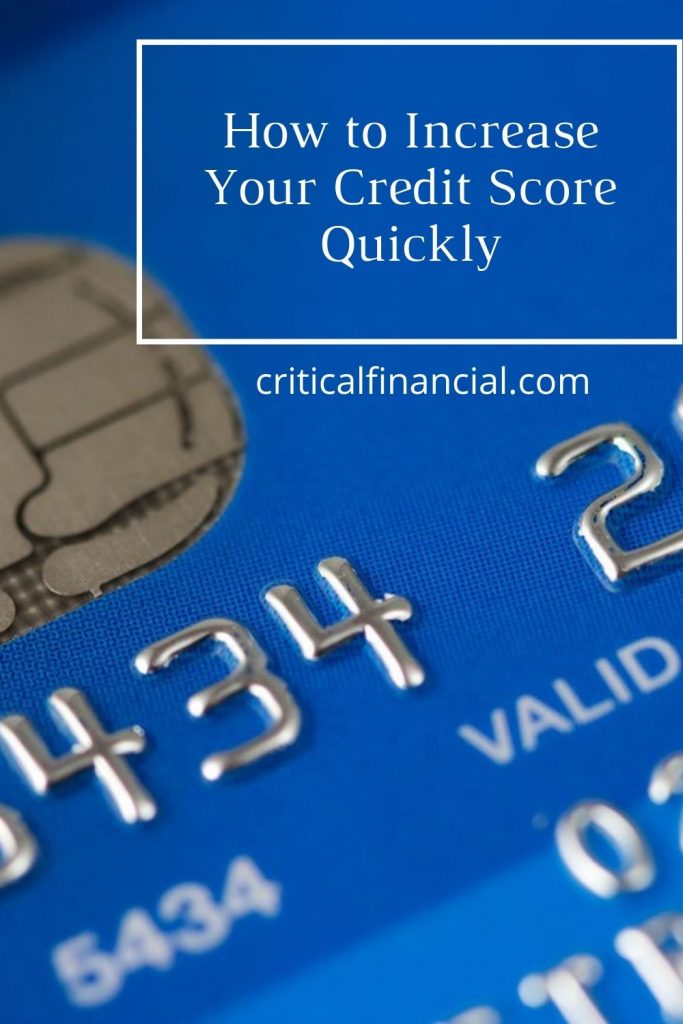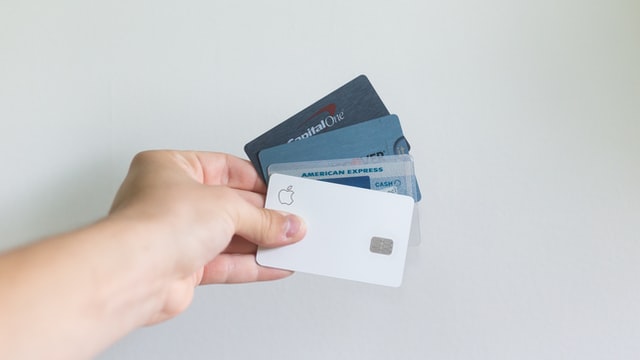
If you’re in the market for a new home now that the interest rates are at historic lows, you may need to increase your credit score quickly. If you’re able to increase your credit score, you’ll be eligible for the lowest interest rates available. After all, the better your credit, the better loan terms you can get. If you have three to six months before buying, here’s how to improve your chances for the best mortgage possible.
Get a Baseline for Your Credit Score
You can get a baseline for your credit score by going to a site like Credit Karma and opening a free account. There, you can check your credit score as often as you like, even daily. This can be an excellent way to monitor your progress as you try to improve your credit score.
How to Increase Your Credit Score Quickly
There are several strategies you can use to lift your credit score by 20 to 50 points or more.
Order Your Credit Report
Next, order a free copy of your credit report at AnnualCreditReport.com. This is imperative. Look carefully through your credit report to make sure there are no errors.
If you do find an error, you’ll need to issue a formal dispute to all three credit bureaus to get it removed from your credit report. (Consumer Finance explains step by step how to do this.)
While the process isn’t quick, taking the time to remove errors on your credit report can lead to an improvement in your credit score.
Reduce Your Debt to Credit Ratio
The next step is to reduce your debt-to-credit ratio. There are several different ways to do this.
Increase Your Credit Limit
First, call your current credit card companies and ask for a credit line increase. They are more likely to do this if you’ve been making your payments regularly.
This can have an immediate affect on your credit score. Let’s say you have two cards, one with a $5,000 credit limit and one with a $8,500 credit limit. Let’s also say that the first card has a balance of $4,200 and the second card has a balance of $7,000. Your total debt to credit ratio is 83% ($11,200 you’re using out of an available $13,500), which is quite high. If the first card agrees to increase your credit line by $500, and the second agrees to $750, you now have a total credit line of $14,750, making your new debt to credit ratio 76%.
Pay Down Balances
In addition to increasing your credit limit, you can also pay down balances to reduce your debt-to-credit ratio. The ideal debt-to-credit ratio is less than 10%, but up to 29% is also consider good. Any amount after that will negatively affect your credit score.
In the above example, if you increase your credit limit and then manage to pay down nearly $7,000, you’ll reach 29% debt to credit ratio. Lowering your balances that much can be difficult, so know that any reduction you can create will help improve your credit score.
Maintain a Lengthy Credit History
Another important factor in your credit score is the length of time you’ve had credit. You’ll need to make smart moves to maintain a long credit history.
Don’t Pay Off Car or Student Loans

Some people want to be completely out of debt before they buy a home. This is an admiral goal, but sometimes, it can hurt your credit score.
For instance, if you’ve been paying on a student loan for 10 years, that is quite a lengthy time you’ve had the account open, which is good for your credit score. If you pay it off before applying for a mortgage, that long line of credit will drop off your report, causing your credit score to drop.
If you have a car or student loan that has been open for a number of years, try not to pay it off until after you buy your new home. Then you can pay it off because you won’t have to worry about it dropping off your credit report and negatively affecting your credit score.
Keep Using All of Your Credit Cards
More and more banks are just closing credit card accounts that are not being used. You don’t want this to happen to you. Not only will it affect your debt-to-credit ratio, but it will also affect the age of credit. Instead, make sure to use all of your credit cards at least once a month so the credit lines stay open.
Avoid Hard Inquiries on Your Credit Report
When you apply for a credit card, a car loan, or a mortgage, that counts as a hard inquiry on your credit report. When you have a hard inquiry, it can temporarily affect your credit report, so try not to apply for any new credit while you’re trying to increase your credit score.
If you have more than one or two hard inquiries on your credit report, your credit score will suffer.
If you have impulse control issues, consider temporarily freezing your credit. Then, when you’re at the store and the clerk asks you if you’d like to apply for a credit card from the company to receive a purchase discount, you can easily say no. When your credit is frozen, you can’t apply for credit until you thaw your credit using a special code you’re given when you freeze your credit. This definitely helps with impulse control.
Make Your Payments on Time
Of course, you want to make sure you make your payments on time, consistently. If you’re more than 30 to 60 days overdue on a payment, your credit will be significantly impacted.
Final Thoughts
Using these strategies, you should see your credit score increase greatly over the next three to six months. Remember, the best mortgage rates go to those who have credit scores of 740 or higher, though anything 700 and above will give you a competitive mortgage rate. If you’re score is less than 700, you may want to wait a few more months before applying so you can continue to work toward raising your credit score.
Read More
How Do Mortgages Work? The Ultimate Guide
The Complete Guide to Credit Scores for Dummies
Will Multiple Credit Cards Hurt Your Credit Score?
Melissa is a writer and virtual assistant. She earned her Master’s from Southern Illinois University, and her Bachelor’s in English from the University of Michigan. When she’s not working, you can find her homeschooling her kids, reading a good book, or cooking. She resides in New York where she loves the natural beauty of the area.

